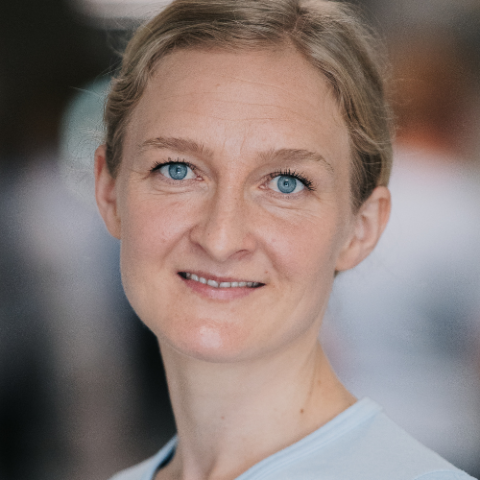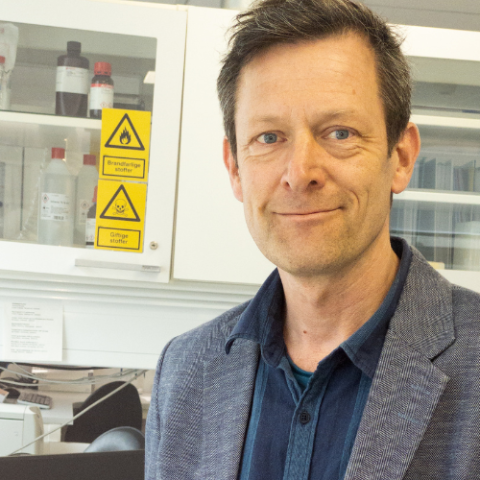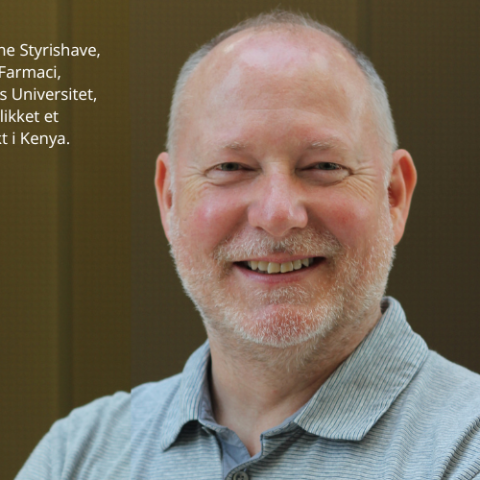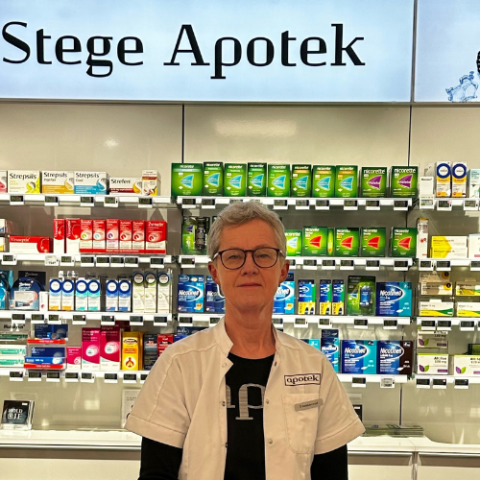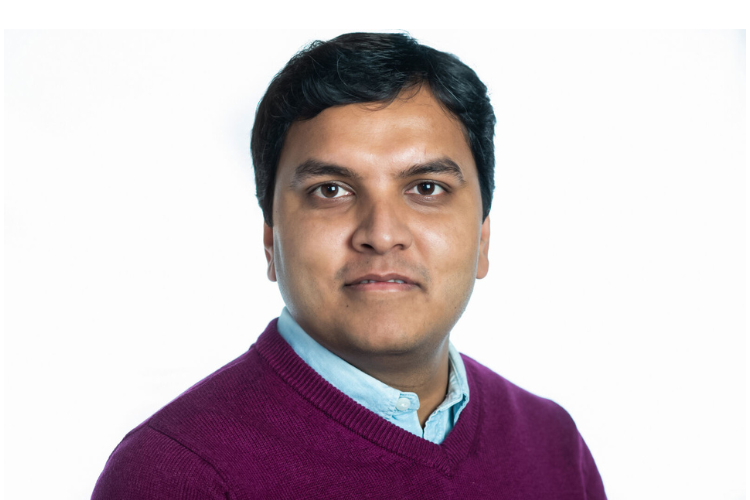
Denmark should boast a little more
Pharma 02/2023 - Theme: International recruitment
Arnab Halder grew up in Midnapore in Eastern India, obtained his PhD at DTU and currently works at Ferrosan Medical Devices in Søborg. He believes that Denmark can afford to shout a little louder about our strong life science industry to attract more foreign talent.
By Charlotte Kiil Poulsen / Photo Private
On a grey November day in 2013, then 24-year-old Arnab Halder landed at Copenhagen Airport. The temperature was significantly cooler than he was used to from Eastern India, where the daytime temperature is usually above 30 degrees.
It was coincidences that brought Arnab to Denmark.
With a master's degree in chemistry, he had been working a few years as a researcher at the Indian Institute of Technology in Kharagpur, India.
When he decided to do a PhD abroad, it was the subject, not the country, that was decisive.
"I had something very specific in mind in relation to my PhD, and I actually applied all over the world. I found a good match in DTU. At the same time, I was also offered a PhD-position in Sweden and Germany. The project in Denmark was very ambitious, and really something I wanted to do in the future, so I chose it," he explains.
He liked the climate and the calmer atmosphere, and at the university they gave him a warm welcome.
"I really liked the cold weather and that it was dark and quiet. At the same time, I was incredibly well received at DTU."
You also listen to the junior colleague
In the beginning, Arnab devoted most of his energy to his PhD-project in biocompatible nanoconstructions for medical devices.
But along the way, he became more comfortable with the culture and with the people, made good friends at DTU and gradually felt that it had been the right decision to choose Denmark.
"People were very respectful and trusted that I could do my tasks. This very trust-based system was very different from what I had been used to. Here there was full confidence in the work I was doing. It really gave me motivation to do more and better research."
In contrast to several of the responses in Pharmanmark's survey among current international students, where few feel properly equipped to enter the Danish labour market, Arnab felt he got good support from the university, which he thinks helped him well both professionally and personally.
"The university really helped me. If I had ideas, they supported me. They helped me build my network. They helped me to go out and meet people from the industry and in the healthcare system. I worked in the field of medical devices, thus it was important for me to meet the doctors who worked with the products. The university helped me with that. It was absolutely amazing," Arnab recalls.
Flat organizational structure surprised
He could see that the meetings gave him a larger network and a better sense of the Danish work culture. Especially the flat organizational structure surprised him:
"I was a little stunned by how easily you e.g. can get in touch with a chief physician at Rigshospitalet. You just send him an email and he will answer, and maybe you already have a meeting the next day. It's all very informal. People see you in a very equal way – I was just a PhD-student and he was an experienced doctor, and yet he took the time to meet," Arnab says and continues:
"I experienced the same with people in high positions in companies. Everyone was very approachable and always very willing to help and exchange ideas. I really liked that."
Although the informal culture surprised Arnab at first, he appreciated it. In his view, the unpretentious style makes the work much easier and more efficient.
"In the beginning I was also surprised how easily I could reach out to my boss and not had to book a meeting first. It makes the work so much easier and more efficient. I really appreciate that. I'm not sure the Danes realize how well it works. But it's very clear when you've worked elsewhere."
Another thing that surprised Arnab was that putting in a lot of hours at work not necessarily was rewarded.
"Efficient work is recognized more than working long hours. In Denmark, you are expected to complete your tasks within your working hours, so it will also be more efficient and you will also have a better balance in relation to your private life."
Denmark beats most
When Arnab finished his PhD, he worked for a year and a half as a postdoc at DTU. To gain more international experience, he then accepted a position in England.
However, Britain was a bit of an upheaval after five years in Denmark.
"Both in the UK and in India, they have a very specific way of doing things. That's fine.. In Denmark, I experienced it quite differently. Here you are expected to give your opinion, even if you are the youngest man with the least experience. People still listen to your opinion."
"I actually believe that Danish society works in an almost ideal way in many different aspects. That makes it a bit difficult to move to another place. When my wife and I moved to England, we kept comparing it to the Danish way of doing it," Arnab recalls.
Brexit did not make the stay any easier, so Arnab and his wife moved to Sweden, where Arnab had found work in January 2020 – a few months before corona broke out.
The pandemic made it difficult to create a new network and make friends. When he was contacted by a headhunter with a job at the medtech company Ferrosan Medical Devices in Søborg, it was not difficult to accept.
Arnab believes that one of the reasons why he settled so well in Denmark, and later also returned to Denmark, was a group of Danes and other internationals with whom he became close friends early in his stay in Denmark.
"In the team I worked in, there were several Danes. And they ended up being my really good friends. One of the reasons why I came back to Denmark was actually, because I had made such good friends here. I actually have a better social life and a bigger professional network here."
Arnab is pleased with the work at Ferrosan Medical Devices, which developes and manufactures haemostatic products, used by healthcare professionals to stop bleedings during surgical operations.
He lives with his wife and toddler, and they plan to stay longer in Denmark.
"I really want to use my broad technical skills in chemistry and medical devices to make a difference in people's lives. Denmark's life science industry gives me better opportunities to work with what I am passionate about."
Positive publicity and branding can help
The good career opportunities in the life science sector in Denmark are something that Arnab believes could be better communicated abroad.
"Denmark has a really good life science industry. But it is not very well known anywhere else in the world. In India, people typically know about Switzerland, Britain, Germany, and the US. They don’t know what is happening around Copenhagen. So maybe Denmark should do a little more branding for the Danish life science. They have a really good industry and very good living standards, so there's plenty to advertise for."
He also believes that the new positive signals regarding international students will make a difference in attracting and retaining talented foreigners.
"Nowadays, you hear far more often that there is a need for international talents. You didn't hear that when I came to Denmark," he says and continues:
"Foreigners had a hard time staying here and getting a job, and they never heard that anyone wanted them to stay. But now it has changed a lot. There are suddenly many people in the industry and politicians who say, 'we really want you to stay'. It helps a lot, I think, that people feel welcome."
He also recommends both Danish and international people to read Kay Xander Mellish's blog 'How to live in Denmark', which helped Arnab understand the Danish society, and which he still reads from time to time.
Other articles in English from Pharma 2/2023:
- Lundbeck: We need more than just Danish talents
- Friends and student jobs are vital for your stay in Denmark
- The best match was Chilean
- International students generate big gains
Magazine: Pharma 02/2023 (in Danish)
Event on 16th of March: Educational session in cultural diversity
Pharmadanmark hosts an educational session in cultural diversity. The meeting is for anyone who is interested in perspectives on cultural intelligence and wants to learn about cultural diversity.
Working across cultures has become a central part of modern companies, and in nearly all aspects of international cooperation, culture is present. And it can certainly create challenges – from fundamental cultural biases about what is considered good leadership to individual interpretations of tone, looks and body language.
The speaker is Signe Ørom, Ph.d. in language and culture, and author of ’Did You Get The Point?: Cultural Intelligence and Diversity in Global Cooperation’, a data-driven book about collaboration and leadership in multicultural teams.
The event takes place on the 16th of March 17.30-19.30.




